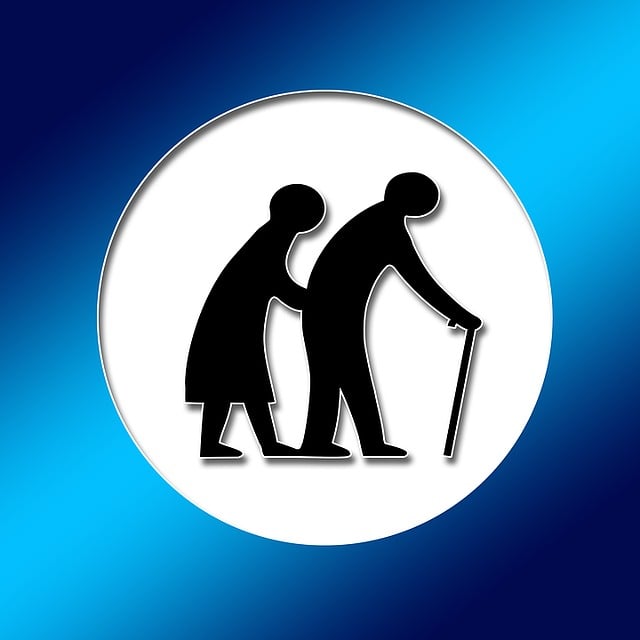In Connecticut, victims of nursing home sexual abuse have legal protection and recourse through specialized nursing home abuse lawyers and attorneys. These professionals advocate for residents' rights, ensuring institutions meet strict standards of care and are held accountable for negligence. By utilizing robust state laws, evidence, and documentation, they help secure compensation for victims and deter future harm. Key terms: nursing home abuse lawyer Connecticut, nursing home sexual assault lawyers CT, nursing home abuse law firm CT.
In Connecticut, nursing home residents are particularly vulnerable to sexual abuse due to the institutions’ care-focused environments. Understanding this pervasive issue requires examining both the legal framework protecting seniors and the negligence that can lead to heinous acts. This article guides readers through the intricacies of nursing home abuse, focusing on strategies for holding institutions accountable. For those seeking justice as a Connecticut nursing home abuse lawyer or attorney, we explore legal action paths, from evidence documentation to compensation and prevention measures, empowering victims and their families with knowledge.
- Understanding Nursing Home Sexual Abuse in Connecticut
- Legal Framework: Laws and Regulations Against Sexual Negligence
- The Role of Nursing Home Staff and Institutions in Prevention
- Evidence and Documentation in Nursing Home Abuse Cases
- Compensating Victims: Damages and Legal Recourse
- Holding Institutions Accountable: Strategies for Legal Action
Understanding Nursing Home Sexual Abuse in Connecticut
In Connecticut, the issue of nursing home abuse, particularly sexual assault, has gained significant attention due to its severe impact on vulnerable residents. Nursing homes are supposed to be safe havens for the elderly and those with disabilities, but unfortunately, instances of sexual misconduct by staff members have been documented, causing great distress and harm to the victims. A nursing home abuse lawyer in Connecticut or a dedicated attorney from a reputable law firm specializing in nursing home abuse law can help ensure that institutions are held accountable for their negligence.
The state’s legal framework provides a clear path for victims and their families to seek justice. Nursing home sexual assault lawyers in Connecticut advocate for residents’ rights, pursuing legal action against facilities and staff members who have failed in their duty of care. By engaging the services of experienced attorneys, survivors can access compensation for physical and emotional trauma, medical expenses, and other associated damages. These legal professionals also play a crucial role in raising awareness about nursing home abuse, encouraging institutions to strengthen policies and procedures to prevent such heinous acts from occurring again.
Legal Framework: Laws and Regulations Against Sexual Negligence
In Connecticut, the legal framework for addressing sexual abuse negligence in nursing homes is robust, with various laws and regulations in place to protect residents. The state has strict guidelines regarding consent, privacy, and the overall safety of individuals in care facilities. Nursing home operators and staff members are held to a high standard of care, and any failure to prevent or address sexual assault can result in legal repercussions.
A nursing home abuse lawyer Connecticut residents trust can help navigate these complex laws, which include specific provisions against sexual harassment and assault. The state’s regulations emphasize the importance of reporting and investigating incidents promptly, ensuring that victims receive adequate support and justice. Nursing home abuse attorneys Connecticut offers are well-versed in these legal aspects, enabling them to represent victims effectively, holding institutions accountable through nursing home sexual assault law firms CT.
The Role of Nursing Home Staff and Institutions in Prevention
Nursing home staff play a pivotal role in preventing and addressing sexual abuse within their facilities. As caregivers, they are often the first line of defense against potential harm to residents, especially vulnerable elderly individuals who may be cognitively impaired or physically frail. Staff members are trained to recognize signs of distress or unusual behavior, which could indicate a resident is experiencing unwanted advances or abuse. Prompt reporting and intervention by nursing home staff can prevent further incidents and ensure the safety and dignity of their charges.
Institutions bear a collective responsibility for creating and upholding safe environments for their residents. This includes implementing robust prevention strategies, such as comprehensive training programs for staff, strict visitor policies, and regular security checks. Moreover, nursing homes should foster an open and transparent culture where residents and their families feel comfortable discussing concerns related to personal safety. Engaging Connecticut nursing home abuse lawyers or attorneys from reputable law firms specializing in nursing home sexual assault cases can help hold institutions accountable and ensure that resident rights are protected under state laws.
Evidence and Documentation in Nursing Home Abuse Cases
In Connecticut, holding institutions accountable for sexual abuse negligence requires robust evidence and documentation. When it comes to nursing home abuse cases, especially those involving sexual assault, the importance of meticulous record-keeping cannot be overstated. Nursing home abuse lawyers and attorneys in CT often rely on a variety of documents to build strong legal cases: resident care plans, incident reports, staff training records, surveillance footage (if available), and witness statements. These pieces of evidence not only detail the abuse but also highlight the potential negligence or lack of supervision by the institution’s staff.
Nursing home sexual assault law firms in CT specializing in these matters understand that timing is crucial. Documenting incidents promptly ensures that evidence remains admissible. Furthermore, these records can reveal patterns of behavior that may indicate systemic issues within the facility. With the help of experienced nursing home abuse lawyers and attorneys in Connecticut, victims can seek justice and compensation for their suffering. Using robust evidence and documentation, legal professionals can navigate complex laws and regulations to hold institutions accountable for sexual abuse negligence.
Compensating Victims: Damages and Legal Recourse
When a victim of sexual abuse in a nursing home seeks justice, compensating them for their damages is a critical step. Such compensation can help victims heal and rebuild their lives after experiencing such trauma. Legal recourse for nursing home sexual assault cases in Connecticut involves holding institutions accountable through civil lawsuits. Victims and their families can pursue damages from the facility, staff members, and even individual perpetrators who contributed to or enabled the abuse.
A nursing home abuse lawyer or attorney in Connecticut specializing in these matters can guide victims through the legal process. They will help navigate the complexities of evidence collection, expert witness testimony, and filing claims against the responsible parties. Ultimately, successful lawsuits result in monetary damages that cover medical expenses, therapy costs, pain and suffering, and other losses suffered by the victim. These legal actions not only provide financial support but also serve as a crucial mechanism to deter similar instances of neglect and abuse in the future.
Holding Institutions Accountable: Strategies for Legal Action
Holding institutions accountable for sexual abuse negligence is a crucial step in ensuring justice and preventing future harm. In Connecticut, individuals who have suffered sexual assault or abuse within nursing homes, hospitals, or other care facilities have legal options available to them. A qualified nursing home abuse lawyer Connecticut can guide victims through the complex process of pursuing compensation and holding perpetrators responsible.
Victims may seek damages for physical injuries, emotional distress, pain and suffering, and loss of quality of life through nursing home sexual assault lawyers CT. They can also take legal action against institutions that failed to provide adequate safety measures, particularly in cases where staff members are complicit in the abuse or neglect. Reputable nursing home abuse law firms CT specialize in these matters, utilizing expert witnesses and extensive knowledge of Connecticut’s legal landscape to secure favorable outcomes for clients.





